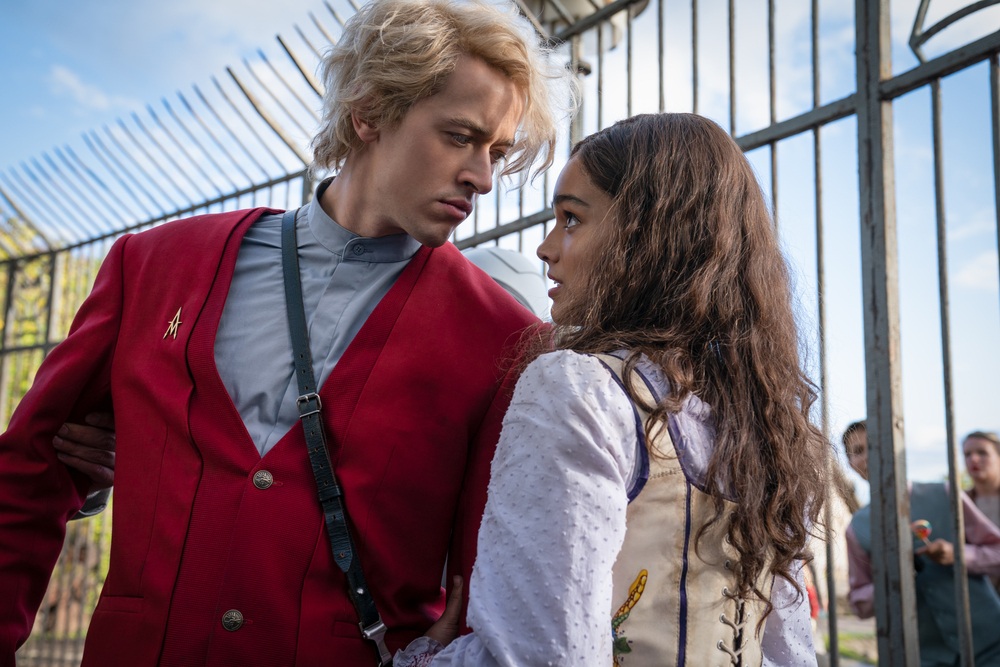The Hunger Games: The Ballad of Songbirds and Snakes

Tom Blyth and Rachel Zegler star in THE HUNGER GAMES: THE BALLAD OF SONGBIRDS AND SNAKES. (Photo: Lionsgate)
Rather than an origin story or prequel that expands the mythology in meaningful ways, The Hunger Games: The Ballad of Songbirds and Snakes mostly feels like a rematch.
This latest installment in the dystopian fantasy franchise emphasizes spectacle over substance, rehashing many of the same plots and themes with fresh faces and a few familiar names.
It’s set two generations before the original film, following future tyrannical overlord Coriolanus Snow during his younger years. After having grown up in the affluent capital of Panem, he’s assigned to be a mentor to one of the teenage “tributes” from poor outlying districts chosen to fight to the death and garner big television ratings in the annual barbaric Hunger Games gladiatorial competition.
His idealism and desire to rebel against his sheltered upbringing leads Coriolanus (Tom Blyth) to befriend Lucy (Rachel Zegler) and bend the rules to aid her victory — and survival. Hints of disloyalty draw suspicion from serpent-obsessed game designer Volumnia Gaul (Viola Davis), as well as a vengeful doctor (Peter Dinklage) and a smarmy TV host (Jason Schwartzman).
Nevertheless, Coriolanus and musically inclined Lucy form a partnership. Uncertain who to trust, they must navigate a maze of inflamed rivalries, changing rules, shifting loyalties, and cloudy motives.
As with its forerunners adapted from Suzanne Collins novels, The Ballad of Songbirds and Snakes is a morality tale layered with real-world resonance with an exaggerated perspective on socioeconomic oppression, systemic inequality, and capitalist greed.
Returning series director Francis Lawrence stages sequences both harrowing and heroic, including those that feature the tributes held in zoo-like cages — although some of the action scenes convey a disorienting fisheye visual sensation when not viewed on giant screens.
Blyth (“Billy the Kid”) and Zegler (West Side Story) are compelling, but the periphery characters generally lack depth and complexity.
As we endure drawn-out segments devoted to exposition and to the game itself — which features some moderately suspenseful twists, even if the outcome is never in question — the inevitable subplot about forbidden love provides an unlikely key to much improved final third of the film.
With Lucy’s empowerment as an emotional anchor, the last hour brings a richer texture to the characters while providing obligatory connections to the original films.
At least that late push to explore new ground sets up a potentially intriguing next chapter that hopefully will have the odds more in its favor.
Rated PG-13, 157 minutes.